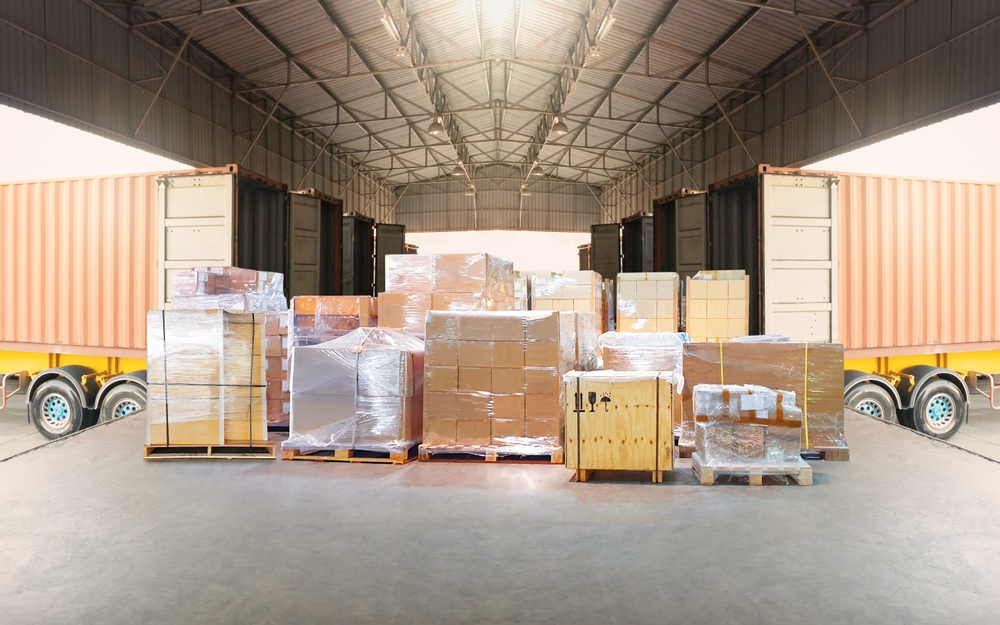What Is Green Logistics? - and Its Significance in 2023


In an era marked by growing environmental consciousness, businesses across the globe are recognizing the need for sustainable practices in their operations. The logistics sector, responsible for moving goods and materials through supply chains, has been at the forefront of this transformative shift.
The concept of "green logistics" has gained prominence, offering solutions to reduce energy consumption, curb the use of fossil fuels, and minimize ecological impact. This article explores the essence of green logistics and its profound significance in 2023.
The Basics of Green Logistics
Green logistics, also known as sustainable logistics or eco-friendly logistics, refers to applying environmentally responsible practices and strategies within the logistics sector. Its main goal is to promote sustainability throughout the supply chain and lessen the damaging impact that logistics operations have on the environment.
Green logistics is a pivotal component of Sustainable Supply Chain Management (SSCM), a broader approach that integrates sustainability principles into every facet of supply chain operations. SSCM encompasses green logistics practices, sustainable procurement, ethical sourcing, and waste reduction.
Critical Components of Green Logistics
There are several components that are relevant for green logistics, including:
1. Transportation
One of the critical areas where green logistics practices come into play is transportation. Businesses are transitioning to energy-efficient modes of transport, including electric vehicles and alternative fuel vehicles, to reduce fuel consumption and air pollution.
2. Inventory Management
Efficient inventory management helps minimize waste by ensuring that products are stored and handled in an environmentally responsible manner. This can include optimizing stocking levels and reducing excess raw materials.
3. Packaging
Eco-friendly packaging materials and designs reduce resource consumption and contribute to waste reduction. Logistics companies are increasingly adopting sustainable packaging practices.
4. Warehousing
Green logistics strategies extend to warehouses, where energy-efficient lighting, heating, and cooling systems are implemented to reduce energy consumption and operational costs.
5. Reverse Logistics
This facet of green logistics deals with returning and recycling products and materials. Implementing reverse logistics processes can significantly reduce waste and contribute to sustainable practices.
Why Green Logistics Matters
The significance of green logistics is best understood when examining its environmental impact. The logistics sector significantly contributes to carbon dioxide (CO2) emissions and energy consumption. By embracing green logistics practices, businesses can:
-
Reduce Carbon Emissions: By switching to electric cars, streamlining delivery routes, and using fuel-efficient driving practices, businesses can reduce carbon emissions, improve air quality, and protect the environment.
-
Minimize Waste: Waste management is a crucial aspect of green logistics. Sustainable practices ensure that packaging materials are recycled and products are disposed of responsibly, reducing the burden on landfills.
-
Conserve Natural Resources: Green logistics reduces resource consumption by optimizing processes, reducing energy usage, and recycling materials. This, in turn, conserves precious natural resources for future generations.
Economic Benefits of Green Logistics
Green logistics is not just about environmental responsibility; it also brings economic advantages. Here's how:
-
Cost Reduction through Efficiency: Sustainable logistics practices often lead to increased operational efficiency, resulting in cost savings in the long run.
-
Meeting Regulatory Requirements: With governments worldwide imposing stricter environmental policies, companies that embrace green logistics are better equipped to comply with regulations, avoiding potential penalties.
-
Attracting Eco-Conscious Consumers: Businesses that embrace green logistics techniques can appeal to a wider client base and gain a competitive edge at a time when customers are prioritizing eco-friendly goods and services.
-
Social Responsibility: Beyond environmental and economic considerations, green logistics aligns with the principles of social responsibility:
-
Improving Corporate Image: Companies that demonstrate commitment to environmental sustainability through green logistics are perceived more positively by stakeholders, including customers and investors.
-
Meeting Stakeholder Expectations: Companies are frequently held to a standard of social and environmental responsibility by investors, staff, and business partners. Meeting these demands can be easier by embracing green logistics.
-
Enhancing Employee Morale: Employees are more likely to feel proud of their work and employer when they are part of a company that values sustainability and environmental consciousness.
The Role of Technology in Green Logistics
The successful implementation of green logistics relies heavily on advanced technology. Let's check how artificial intelligence, route optimization, and eco-friendly practices reshape the logistics sector and contribute to a more sustainable future.
1. Advanced Tracking and Monitoring Systems
The integration of cutting-edge tracking and monitoring systems has revolutionized logistics. Real-time data on vehicle performance, delivery routes, and fuel consumption enable logistics companies to make informed decisions. This data-driven approach facilitates better route planning, reducing fuel consumption and lowering carbon emissions.
2. Data Analytics for Optimization
Big data and analytics are at the forefront of green logistics strategies. Logistics businesses can find areas for improvement, such as ineffective delivery routes or processes, by analyzing large datasets.
3. Automation and AI in Logistics
Artificial intelligence (AI) and automation are transforming logistics operations. These technologies, from autonomous delivery vehicles to AI-driven route optimization, enhance efficiency and reduce environmental impact. AI can also predict demand more accurately, reducing excess inventory and waste.
Challenges and Obstacles in Green Logistics
While the benefits of green logistics are substantial, several challenges hinder its widespread adoption:
-
Initial Investment Costs: Transitioning to sustainable practices often requires significant upfront investments in new vehicles, technologies, and infrastructure. Smaller logistics companies may find it challenging to bear these costs initially.
-
Resistance to Change: Traditional logistics practices can be deeply ingrained in organizations. Employees may resist changes in processes and technologies, necessitating effective change management strategies.
-
Limited Infrastructure: The availability of charging or refueling stations for electric and alternative fuel vehicles still needs to be improved in many regions. This infrastructure gap challenges logistics companies seeking to adopt greener transportation options.
-
Regulatory Complexities: Navigating complex environmental regulations and compliance requirements can be challenging. Logistics companies must stay informed about evolving laws and policies, which can vary from one jurisdiction to another.
Top Tips for Going Green in Logistics

Opting for eco-friendly practices will benefit your business and contribute to a more sustainable environment. Let's review how you can contribute to humanity's efforts toward a greener world.
1. Alternative Green Shipping Materials
To kickstart your journey towards green logistics, consider alternative shipping materials like recycled cardboard and biodegradable packaging. These eco-friendly options can significantly reduce your environmental impact.
2. Shipping Full-Loads
Shipping full loads is great for eco-friendly logistics because it makes the most out of transportation space, cutting down on the number of trips needed and thus reducing emissions and fuel usage per shipment.
3. Reducing Customer Returns Effectively
Implement strategies to reduce the likelihood of customer returns. Improved product descriptions, accurate sizing information, and better quality control can minimize the need for return shipments, saving resources and transportation emissions.
4. Strategies for No-Fail Deliveries
Improving delivery reliability with smart route planning and real-time tracking is a win-win. It boosts customer satisfaction while also avoiding the necessity for extra shipments, making the process more efficient and cost-effective.
5. Use Green Transportation Modes
Embrace eco-friendly transportation options such as electric vehicles, hybrid trucks, and trains powered by renewable energy sources. These choices contribute to lower emissions and align with green logistics practices.
6. Employ Energy-Efficient Practices
The logistics sector can use solar energy and energy-efficient lighting, among other energy-saving techniques. By putting these practices into action, you can cut operational expenses and your carbon footprint.
7. Educate Your Employees and Customers
Raise awareness among your employees and customers about reducing your carbon footprint. Engaging them in sustainability efforts can lead to more eco-conscious practices throughout the supply chain.
8. Advocate for Change
Become an advocate for change within the logistics industry. Collaborate with industry associations and governmental bodies to promote sustainable practices and regulations that positively impact the environment.
The Future of Green Logistics: 2023 and Beyond
As global sustainability awareness continues to rise, green logistics is gaining prominence. Companies recognize the need to align their operations with environmentally responsible practices, from sourcing raw materials to delivering products to customers. This shift reflects a growing commitment to reduce the ecological footprint of the logistics sector.
Consumer Demand for Eco-Friendly Products
As consumers increasingly value eco-friendly products and services, businesses face growing pressure to embrace green logistics to meet these expectations. Those integrating sustainability into their supply chains are well-positioned to increase their market share and cultivate loyal customers.
Electric Vehicles as a Key Trend
As mentioned, EVs are emerging as a critical trend in green logistics. This transition will become even more prevalent in the future, marking a significant shift in how we provide transportation services.
Renewable Energy Integration
Logistics companies are increasingly adopting solar and wind power to reduce their environmental footprint. In the coming years, we can expect a substantial expansion in infrastructure dedicated to harnessing these alternative energy sources. Businesses will continue applying these sustainable energy solutions to power warehouses, distribution centers, and electric vehicle charging stations.
Embracing Eco-Friendly Logistics: Final Words
The future of green logistics looks bright, with more companies embracing eco-friendly practices to cut their environmental footprint. In a world of rising environmental concerns, these practices are no longer optional but essential.
They not only pave the way for long-term business success but also contribute to a greener and more sustainable world, reflecting a broader commitment to environmental responsibility within the logistics sector.
Efficient Shipping with Unival Logistics
Choose Unival Logistics for streamlined shipping routes. We're committed to delivering your goods punctually, securely, and with minimal environmental impact. Our efficient routes not only ensure timely deliveries and package safety but also reduce fuel consumption, contributing to a greener world.
Enjoy comprehensive shipping solutions, competitive package insurance, seamless API integration for businesses, and real-time package tracking. Contact us with any questions or for further assistance.
Latest blogs
Dimensional (DIM) Weight in Shipping: What It Is & How It’s Calculated
Wed, Jan 14th 2026, 07:11
 Continue Reading →
Continue Reading →
Shipping Gold Safely: Packaging, Insurance & Best Practices
Mon, Jan 12th 2026, 03:00
 Continue Reading →
Continue Reading →
Categories
defaultCall Us Today
Get premium full-value shipping insurance at affordable rates and be sure your parcels are 100% safe during transport. Work with a logistics powerhouse - get in touch with us today.
213-368-3444
Contact Us
Want a peace of mind when shipping valuable packages? Our experts are happy to ansver any questions you may have and provide you with a tailored soulution that meets your unique shipping needs. Email us today and ship your luxury items with ease!

.jpg)

